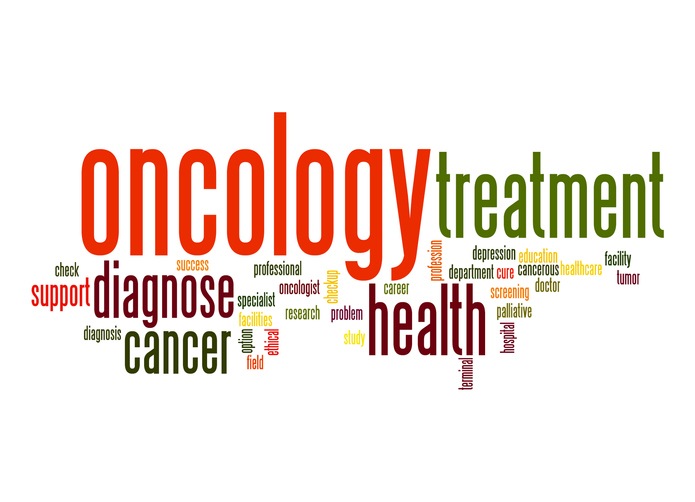
Each week on DocWire News, editors bring you the latest hematology and oncology news and research. In case you missed it, here are this week’s top headlines:
- Dr. Andrew Armstrong on Precision Medicine Approaches in Advanced Prostate Cancer
- Language Barriers Impact Patient Satisfaction with Cancer Care
- 42 Percent of Breast Cancer Patients Report Cannabis Use
- Quitting at Younger Age Cuts Most Smoking-Associated Cancer Mortality Risk
Keep reading for the breakdown on these top stories.
RELATED: Last Week’s Oncology News Round-Up: ASA 2021 Updates
Precision Medicine Approaches in Advanced Prostate Cancer
This week, editors spoke with Andrew J. Armstrong, MD, a physician at Duke Cancer Institute Center for Prostate and Urologic Cancers, about the development of new precision medicine approaches to treat advanced prostate cancer.
“[For] prostate cancer, even 5 years ago, we very rarely would do germline or somatic tumor profiling, and it’s really the advent of the capabilities, both commercial and through regulatory approvals, that have broadened the applicability of germline and somatic profiling—both solid biopsies, like a foundation medicine approach, or liquid biopsies, such as plasma DNA,” said Dr. Armstrong. Watch the full interview to learn more.
https://www.docwirenews.com/gu-oncology-now/phenotypic-precision-medicine-gu-kh/dr-andrew-armstrong-on-precision-medicine-approaches-in-advanced-prostate-cancer/
RELATED: New Tests for Colon, Prostate Cancer Show Promise
–
Language Barriers Impact Patient Satisfaction with Cancer Care
Researchers conducted a randomized trial to investigate how patient-provider language agreement impacts satisfaction with cancer care in Spanish-speaking patients. Compared with patients who used an interpreter to speak with their physician, patients spoken to directly in Spanish reported higher satisfaction and quality of care and greater opportunities to discuss their concerns.
Providers who spoke Spanish were also rated higher in terms of perceived empathy and the patients’ confidence in their abilities compared to ratings when the providers spoke English. Patients being spoken to directly in Spanish were also more likely to initiate unprompted speech and asked more questions than patients receiving interpreted consultations.
https://www.docwirenews.com/urban-health-today/urban-health-picks/language-barriers-impact-patient-satisfaction-with-cancer-care/
RELATED: Two Experts Discuss Health Misinformation in the Hispanic Community
–
42 Percent of Breast Cancer Patients Report Cannabis Use
A considerable proportion of patients with breast cancer report using cannabis for relief of symptoms, according to a study published in Cancer. Of 612 participants surveyed, 42% reported using cannabis for relief of symptoms, including pain, insomnia, anxiety, stress, and nausea/vomiting. However, few (39%) had discussed it with any of their physicians.
“Our study highlights an important opportunity for providers to initiate informed conversations about medical cannabis with their patients, as the evidence shows that many are using medical cannabis without our knowledge or guidance,” said co-author Marisa C. Weiss, MD. “Not knowing whether or not our cancer patients are using cannabis is a major blind spot in our ability to provide optimal care, and as health care providers, we need to do a better job of initiating informed conversations about medical cannabis with our patients.”
https://www.docwirenews.com/docwire-pick/42-percent-of-breast-cancer-patients-report-cannabis-use/
RELATED: Researchers Develop Breast Cancer Prediction Tool for Black Women
–
Quitting at Younger Age Cuts Most Smoking-Associated Cancer Mortality Risk
Starting to smoke at any age is associated with an increased cancer mortality rate, while quitting, especially at younger ages, can avert most of this risk, according to a research letter published in JAMA Oncology. Mortality rate ratios were lower in patients quitting at ages 15 to 34 years or 35 to 44 years compared with quitting between ages 45 to 54 years and 55 to 64 years.
“Widespread smoking cessation among individuals who currently smoke could substantially reduce cancer mortality in the coming years,” said co-author Blake Thomson, DPhil.
https://www.docwirenews.com/hematology-oncology/quitting-at-younger-age-cuts-most-smoking-associated-cancer-mortality-risk/
RELATED: Lung Cancer Treatment May Impact Daily Function in Older Adults
Want to See More Oncology News?
Check out last week’s Round-Up, and be sure to keep up with the latest oncology news and cancer research here on DocWire, updated daily!
https://www.docwirenews.com/latest-hematology-oncology-news-2/







 © 2025 Mashup Media, LLC, a Formedics Property. All Rights Reserved.
© 2025 Mashup Media, LLC, a Formedics Property. All Rights Reserved.